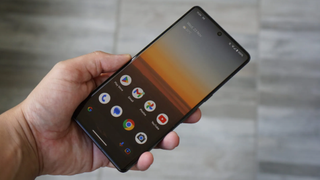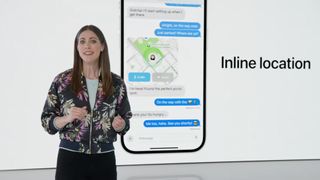Apple’s iOS 17 is a lot more exciting than Android 14, but that’s not entirely a good thing
Apples iOS 17 is almost here, and it is much more complete than Android 14. A casual glance Apple’s iOS 17 press release compared to Google’s non-existent equivalent, that belies it, as does the flurry of articles wondered where Google’s Android 14 was at the big Google I/O event.
It’s a stark contrast. My feelings on this are simple: iOS 17 is a more exciting upgrade than Android 14, but Google has a different strategy for its Android updates. Second, iOS 17 continues to highlight the iPhone’s biggest feature, and you won’t find it in a store.
iOS 17 and Android 14 have different goals
Phone updates may have gotten boring, it’s true, but they’re still necessary. They often deliver new features and security patches to the point that having fast and consistent updates is a selling point for many of them best android phones.
Still, Google has noted that the best Android features it rolls out can’t make it through the update pipeline simply because manufacturers have to add their own tweaks or don’t roll them out to certain phones because the phone didn’t sell that. Good. If Google wants to bring forward something as important as unknown device tracking, it won’t with an Android version update. That would be pointless when it comes to achieving the goal of introducing new features into the wild at scale.
With iOS 17, Apple debuted a handful of features aimed at improving your iPhone. Interactive widgets are finally here! You can now interact with your widgets just like Android. There’s a new call screening tool. Sharing with NameDrop and AirDrop is now easier. There’s even a new Journal app. By contrast, Android 14, according to Google, brought, uh… well, it was up to sleuths to dig into it and not Google to divulge the details.
It’s not a coincidence, not even close. Over the years, Google has moved most of its Android updates to the Play Store. Pixel owners and people who pay attention to the release of Android features will have noticed that these mainly consist of updates delivered through the Play Store. Unlike Apple, Google doesn’t need a completely new operating system to update the Messages app, Podcasts app, or Books app; it can do that directly through the Play Store.
Google sees Android 14’s big role in making those API updates to enable bigger features that an app update simply can’t do. For example, your Android phone takes better Instagram photos on Android 14. So Google will immediately enable Night mode and 10-bit HDR video in Android, which means all social apps will get this as a free update. Google is also adding support for Ultra HDR in Android 14, meaning your photos taken with the general camera app will get so much better (and your social media photos too). It may be able to do that through the Play Store in the future as well, but not right now.
Apple’s most powerful iOS feature isn’t on these slides
While Android and iOS remain roughly equivalent in terms of features, Apple still stands out for this one update approach, this one je ne sais quoi which cannot be completely packaged or put on slides. Apple can actually engage people in its features, a useful tool when many of the upcoming iOS features require at least two people.
I have no doubt that the new iMessage features, the new NameDrop features, the new voicemail, and so on will generate engagement from enough iPhone users to make learning them worthwhile.
Google could launch the same features, but between the Google Graveyard and which sister site Android Central Calls ‘Trollouts’features that rely on mass adoption tend not to take off on Android.
Take Nearby Sharing as an example. On paper, this is a solid AirDrop rival, but you probably didn’t know it existed until now. Google is also struggling to convince people to adopt its iMessage rival RCS, to the extent that it’s reduced to begging Apple to adopt it on the iPhone. With Apple determined to ignore Google’s pleas, cross-platform apps like WhatsApp and Facebook Messenger won’t wake up anytime soon.
But now that Apple has unbundled its system apps and allowed users to ban them from the App Store, it might be worth wondering if users will benefit if Apple releases these app updates over the course of a years on their iPhones. There’s no reason why an update that allows the Podcast app to change the background color in response to what’s currently playing requires a full system update.
At the same time, if something is constantly changing, the most important changes will be lost and not appreciated. Perhaps, as the failure of Google’s more frantic pace (when it comes to encouraging mass adoption) has shown, in some cases it’s better to stop and sniff the coffee.
Apple’s iOS 17 is expected to release in September, as is Google’s Android 14.



